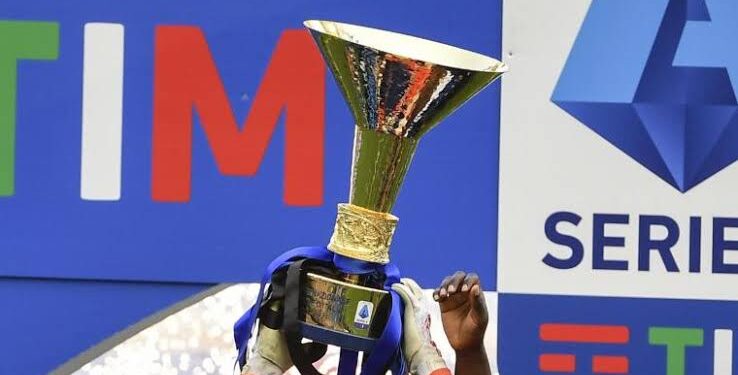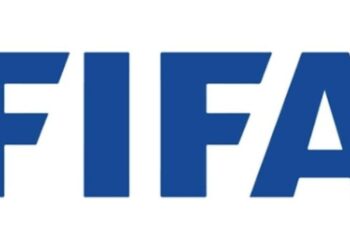Italian football is at a crossroads. The Champions League playoffs 2nd leg saw Juventus, AC Milan, and Atalanta stumble out, leaving Inter Milan as Serie A’s sole representative. These eliminations expose fundamental flaws within Italian football, questioning the league’s capacity to compete at the highest European level.
Just one Italian representative left in Europe’s most prestigious competition is a far cry from what Serie A is known for.
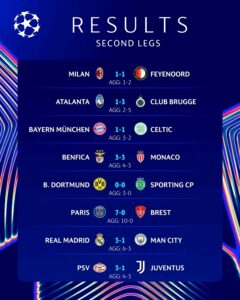
It now seems as though it was over a century ago that we witnessed Juventus get to the Champions League Final on two separate occasions in the space of 10 years only to lose to Barcelona and Real Madrid, respectively. Let’s not even talk about AC Milan’s domination of Europe at a point in time.
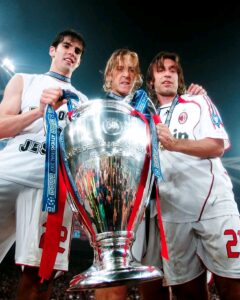
Granted, the Italian league has never attracted much attention like their Spanish and English counterparts, but they were never far off. Now, it seems as though they have lost their mojo… Or maybe not.
Juventus: A Fallen Giant
Juventus’s elimination against PSV Eindhoven was particularly disheartening. Despite a stunning goal from Timothy Weah, Juventus failed to capitalize on their first-leg advantage.

Their 4-3 aggregate loss underlined long-standing defensive vulnerabilities and tactical rigidity. Juventus, once a European powerhouse, now faces questions about its identity and strategy.

They last lifted the Champions League trophy in 1996, and their inability to progress in recent years shows stagnation rather than evolution. A shift in tactical philosophy and strategic recruitment is essential if Juventus hopes to reclaim its status among Europe’s elite.
AC Milan’s Identity Crisis
AC Milan’s exit was equally painful, not just for the fans but for the legacy of a club with seven Champions League titles. No disrespect to Feyenoord because they deserved their win in the playoffs, but losing to such a club is a big slap to a team that once commanded fear in Europe.

Milan fell to Feyenoord with a 2-1 aggregate loss. The turning point was Theo Hernandez’s needless red card for diving, which exposed Milan’s fragile defense.
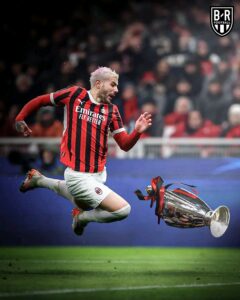
Despite an initial strong start and significant investments, Milan displayed tactical naivety and a lack of leadership on the pitch. Zlatan Ibrahimovic’s post-match comments criticizing Milan’s mental collapse revealed internal issues that go beyond technical flaws. The leadership void, coupled with inconsistent performances, leaves Milan at a crossroads.

If they are to compete at the highest level again, Milan must rebuild with a more cohesive strategy, both on and off the pitch.
Atalanta: Promise Unfulfilled
Atalanta’s exit was arguably the most dramatic and controversial. For a club that won the Europa League against Xabi Alonso’s Bayer Leverkusen last season, much more was expected from them at this stage.
Losing 5-2 on aggregate to Club Brugge, Atalanta’s downfall was marked by a missed penalty from Ademola Lookman and subsequent defensive lapses. The fallout from this loss has been severe, with Lookman reportedly clashing with manager Gian Piero Gasperini.

This internal conflict reveals deeper issues within the club’s management and player relationships. Atalanta’s exciting brand of attacking football has thrilled audiences in recent years, but their defensive frailties and managerial disputes hindered their progress on the European stage this season. To remain competitive, Atalanta must address these internal dynamics while strengthening their tactical flexibility.
Serie A’s Systemic Decline
The collective failure of these clubs signals a worrying trend for Serie A. Once revered as the pinnacle of tactical brilliance and defensive solidity, Serie A is now struggling to keep pace with the intensity and dynamism of the Premier League, La Liga, and even the Eredivisie.

Italian football’s reliance on outdated tactical systems, combined with poor financial management, has left clubs vulnerable against more modern and adaptable European teams.
Several factors contribute to this decline. First, the financial disparities between Serie A and its European counterparts are staggering. English clubs, bolstered by lucrative broadcasting deals, possess the financial clout to attract top-tier talent and coaches. In contrast, Italian clubs are weighed down by debt, financial mismanagement, and outdated stadium infrastructures. Juventus, for example, is still dealing with the repercussions of financial scandals, impacting their transfer strategies and wage structures.

Second, tactical stagnation is plaguing Italian football. Serie A, once known for its tactical mastery, has become rigid and predictable. Italian managers, traditionally conservative, have failed to adapt to the modern, high-intensity pressing game employed by Europe’s best. This was evident in all three eliminations, where Italian teams struggled to cope with the tempo and tactical fluidity of their opponents. Juventus was outmaneuvered by PSV’s dynamic attack, Milan faltered under Feyenoord’s pressing game, and Atalanta crumbled against Club Brugge’s counterattacking precision.
To bridge this tactical gap, Serie A must embrace more progressive coaching philosophies and invest in tactical versatility.
Also, Youth development is another area where Serie A lags. Italian clubs are overly reliant on veteran players while neglecting homegrown talents. In contrast, leagues like the Bundesliga and La Liga have integrated youth systems that consistently produce world-class talents.
The absence of young Italian stars in the Champions League spotlight is a testament to this failing. Serie A clubs must prioritize their academies, nurturing local talents who understand the club’s identity and playing philosophy.

This approach would not only reduce dependency on expensive foreign imports but also create a sustainable model for long-term success.
Furthermore, the coaching philosophy within Serie A also requires an overhaul. Italian managers need to adapt to contemporary footballing trends. Defensive solidity alone is no longer sufficient; modern football demands tactical fluidity, pressing systems, and dynamic offensive strategies. AC Milan’s defensive collapse, Atalanta’s inability to adapt mid-game, and Juventus’s rigid tactics illustrate the urgent need for innovation. Serie A must foster a new generation of tactically astute managers who can implement adaptable game plans.
Moreover, Serie A’s marketing and global reach are alarmingly insufficient. While the Premier League and La Liga have successfully globalized their brands, attracting international fans and lucrative sponsorships, Serie A remains localized. This not only limits revenue streams but also affects player recruitment and brand value. Italian clubs need to modernize their marketing strategies to compete globally.
A Call for Structural Reform
Structural reforms within Serie A are imperative. The league needs financial regulations that encourage sustainable spending while maintaining competitiveness. The implementation of modernized stadium infrastructures and fan engagement strategies will also enhance revenue generation. Serie A should look towards models like the Bundesliga’s 50+1 rule, which ensures fan involvement while promoting financial stability.
The Road Ahead

The pressure now mounts on Serie A to introspect and evolve. The Italian footballing system, from grassroots to the top-flight league, requires a paradigm shift. This entails not only tactical evolution but also cultural and structural changes that embrace modern footballing philosophies while preserving the rich heritage of Italian football.
The failures of Juventus, AC Milan, and Atalanta might be reflections of deeper systemic issues. Serie A’s complacency and resistance to change have led to a decline in European competitiveness. If Italian football is to regain its former glory, it must reinvent itself with bold, innovative approaches that reflect the modern game. The Champions League debacle is a harsh reminder of the urgent need for change. Without it, Serie A risks becoming a relic of the past, outpaced by more dynamic and forward-thinking league.

As Inter Milan bears the burden of defending Italy’s honor in Europe, the pressure is on Serie A to evolve. The league must confront its shortcomings and initiate reforms to restore Italian football’s prestige on the continent. The time for complacency is over; without bold changes, Serie A risks further decline in European football’s hierarchy.
The journey back to European supremacy will be arduous, but Italian football has the heritage, passion, and potential to rise again. The question remains: will Serie A embrace the change it desperately needs, or will it continue to be haunted by the ghosts of its glorious past?

